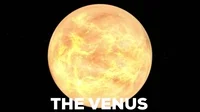
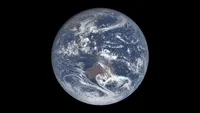
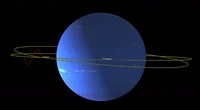
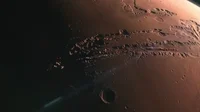
Hello! Welcome back! Today we’ll talk about planets. Which one resembles you the most? Let’s see!
Have you already tried our Planet Quiz?
This quiz will be perfect if you’re looking for:
Planets are celestial bodies that orbit around a star in a balanced, elliptical manner. There are eight planets in our Solar System, which are Mercury, Venus, Earth, Mars, Jupiter, Saturn, Uranus, and Neptune.

These are the eight planets in our Solar System. They all have unique characteristics, but they all orbit around the Sun balanced and orderly.
Planet Mercury is the smallest and innermost planet in the Solar System. It orbits the Sun at an average distance of 57 million kilometers or 0.39 AU, making it the closest planet to the star. It has a mass of 3.3011 x 10^23 kilograms, making it the second-most-massive planet in the Solar System, after Jupiter.
Mercury has no natural satellites, and its only known atmosphere is a thin exosphere composed mostly of oxygen, sodium, hydrogen, helium, and potassium. The planet’s surface is heavily scarred by craters and is composed of silicate and iron. It has a weak magnetic field, and its temperature ranges from -173°C to 427°C. Mercury is one of the most intriguing planets in the Solar System. It is the only planet that is completely covered by an iron core and its iron-rich mantle. This core is thought to be the reason why Mercury is the densest planet in the Solar System.
Mercury also has a very slow rotation, taking 58.646 Earth days to complete one rotation. This slow rotation, coupled with its proximity to the Sun, makes Mercury the hottest planet in the Solar System. Despite its small size, Mercury has a rich and fascinating history. One of the most interesting things about the planet is that it is the only planet that has a “retrograde” orbit. This means that the planet’s orbit around the Sun is opposite the direction of the other planets. The planet’s orbit is also very eccentric, meaning that the planet’s distance from the Sun varies significantly over its orbit.
Which Avenger are you? This quiz will tell you.
Mercury is also home to some of the most active volcanism in the Solar System. The planet’s volcanic activity is so intense that its surface is constantly being reshaped by flowing lava. Scientists believe that these volcanic eruptions have been responsible for creating many of the planet’s craters and other features.
Venus is the second planet from the Sun and is the brightest natural object in the night sky. It is the sixth largest planet in the Solar System and has an average distance from the Sun of about 108 million kilometers. Venus is sometimes referred to as the sister planet to Earth, as the two have many similarities.
The atmosphere of Venus is composed primarily of carbon dioxide, with a small amount of nitrogen and trace amounts of other gases. The surface temperature of Venus is extremely hot, reaching 864 degrees Fahrenheit (462 Celsius). This is due to the presence of a thick atmosphere that traps heat. The surface of Venus is extremely dry, with no liquid water. The clouds on Venus are mainly made of sulfuric acid and are constantly in motion, creating a unique feature in the night sky. Venus has a few moons, but they are very small and not visible to the naked eye. They are called Phobos and Deimos.
Earth is an amazing planet that is home to billions of diverse species. It is the only planet known to have life and to support an atmosphere that contains oxygen. Earth is the only planet in our Solar System that has liquid water on its surface. This makes it an ideal place for life to exist. Earth is estimated to be about 4.5 billion years old. It is the third planet from the Sun and the fifth largest in the Solar System. It has a diameter of about 12,756 kilometers (7,926 miles), making it the fifth-largest planet.
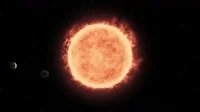
Earth has one natural satellite, the Moon. Earth has a unique atmosphere that contains oxygen, nitrogen, and other gases in varying amounts. This atmosphere is what makes it possible for living things to exist. It also protects us from harmful radiation from the Sun. Earth’s surface is composed mainly of water. About 71 percent of the planet is covered in water, and the rest is composed of land. The land area is divided into seven large continents and many smaller islands.
Named after the Roman god of the sea, Neptune is the eighth and farthest planet from the Sun in our Solar System. It is the fourth largest planet in the Solar System, and the most distant planet visible to the naked eye. It is an ice giant, composed of hydrogen and helium, with a small amount of methane and other icy compounds.
Which element are you? This test knows.
Neptune orbits the Sun at an average distance of 4.498 billion kilometers (2.795 billion miles), making it 30 times further from the Sun than Earth. It completes one orbit in 165 years and rotates around its axis once every 16 hours. It is known for its active and dynamic weather system, with high winds and frequent storms that can last for years.